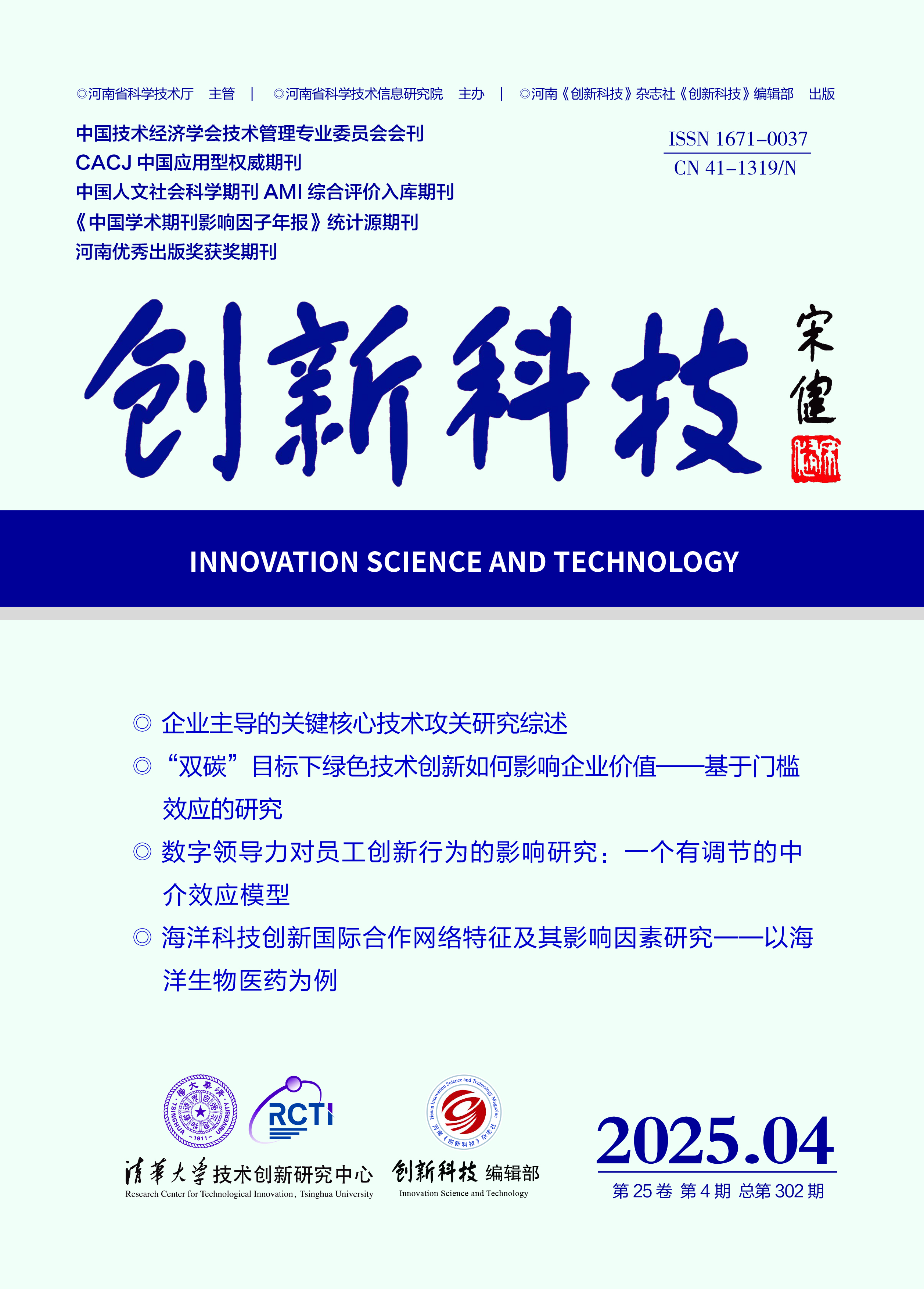INNOVATION SCIENCE AND TECHNOLOGY
Quick Search

All publication are peer-review
Peer review will take the from of double-blind review Judge objectively and impartially
There is no conflict of interest for the reviewer
Review articles shall be kept strictly confidential prior to publication
Theories and Methods of Science of Science
A Review of Research on Enterprise-Led Development in Key Core Technologies
Chen Jin1, 2 , Hou Erxiu3 , Li Xin3 , Yin Ximing4 , Li Yitong5
(1.School of Economics and Management, Tsinghua University, Beijing 100084, China; 2.Research Center for Technological Innovation, Tsinghua University, Beijing 100084, China; 3.School of Economics and Manage‐ ment, Inner Mongolia University of Technology, Hohhot 010051, China; 4.School of Management, Beijing Insti‐ tute of Technology, Beijing 100081, China; 5.College of Computer Science and Technology, Jilin University, Changchun 130012, China)
Abstract: In the context of intensified global competition and technological blockade, key core technologies directly related to national industrial security and core competitiveness have become an important strategic pivot of the major power game. Since the trade war between China and the United States started in 2018, the problem of technological "bottleneck" has come to the forefront and the academic research on key core technologies has increased. Most existing re‐ search mainly focuses on the connotation of key core technology development definition, influ‐ encing factors, organizational models, breakthrough paths, and other aspects related to key core technologies, but there is no systematic combing of the evolutionary trajectory of key core tech‐ nology development research in which enterprises are involved. In this paper, we employ dual perspectives of policy logic and bibliometrics, utilizing the visual analysis method of scientific knowledge mapping. We conduct a bibliometric analysis of 167 relevant pieces of literature from the CNKI database, covering the period from January 2016 to February 2025. Our approach in‐ cludes high-frequency word time-zone division, hot word clustering, and emergent word analy‐ sis to explore the evolutionary path of research on key core technology development with enter‐ prise participation. The study analyzes the evolution of research in this area, compiles a core theoretical framework, and anticipates future development trends. The study finds that: ① the evolution of the research is closely linked to policy orientation and can be categorized into three phases: germination—participation period (2016—2018), development—in-depth participation period (2019—2021), and deepening—dominant period (2022—2025). The participation period focuses on diagnosing technological dilemmas and reforming mechanisms. It aligns with the 13th Five-Year Plan, which aims to reinforce the role of corporate innovation. The in-depth participa‐tion period emphasizes identifying technology and optimizing a new system for mobilizing re‐ sources nationwide. This phase corresponds with the 2020 strategy for scientific and technologi‐ cal self-reliance. During the dominant period, the study transitions to constructing a collabora‐ tive ecosystem led by major enterprises of the industrial chain, which is in line with the deploy‐ ment of "enterprise-led integration of industry, academia and research" as proposed in the reso‐ lutions of the twentieth National People's Congress. ②Based on the dynamic capability theory and the I-P-O model, we can refine the three-dimensional framework of "driving factors (tech‐ nology—organization—environment)—path of development (autonomous—synergistic—commer‐ cialization) —results of development (macro—meso—micro)". This framework reveals the role leaping mechanism that allows enterprises to transition from technology breakthrough leaders to ecological integrators. ③ The future focuses are the mission-based innovation of major enter‐ prises of the industrial chain under a new system for mobilizing the resources nationwide, the technological convergence effect in the field of artificial intelligence and integrated circuits, and the fusion of interdisciplinary approaches in the commercialization path of key core technologies. This paper organizes the evolution logic and knowledge system of enterprise-led technology re‐ search, providing insights for deepening theoretical research and policy practice.
Key words: key core technologies development; enterprise—led; scientific knowledge map‐ ping; bibliometrics